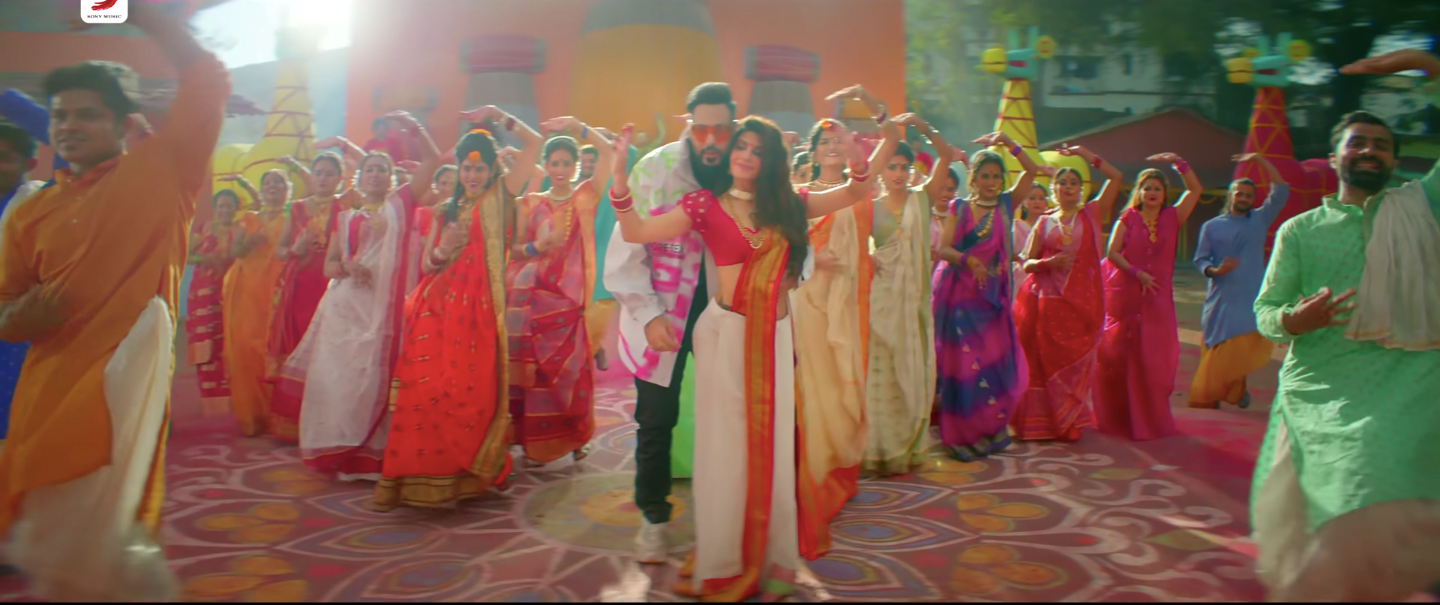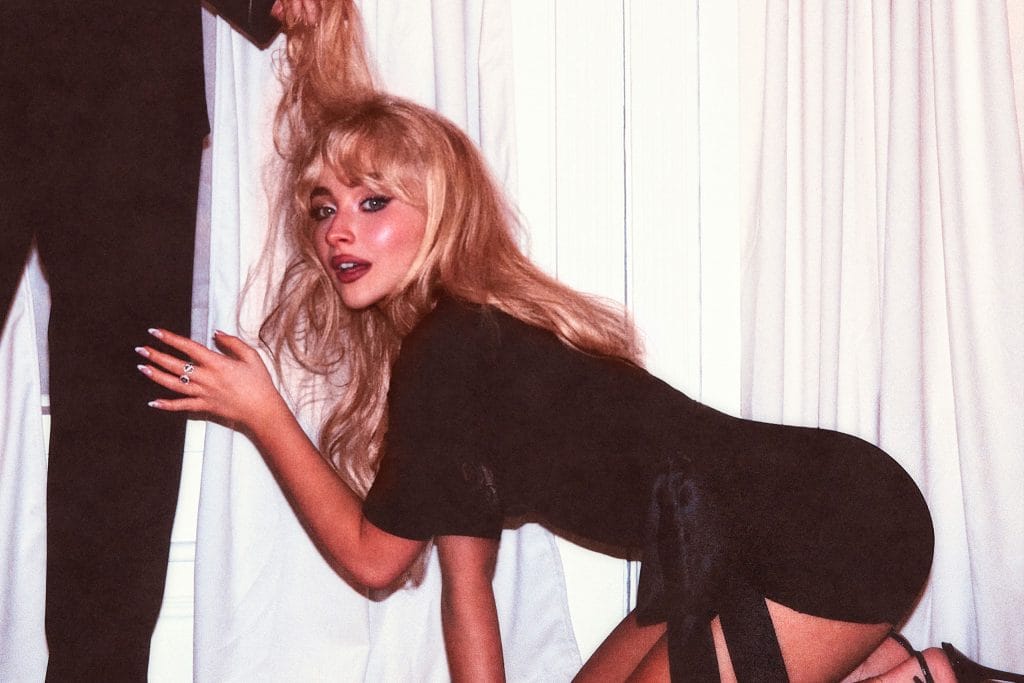From comparisons of female bodies to foods, odd camera angles to objectification and drawing parallels to animals, music features it all. Whether it is Sony Music, mainstream Bollywood music, or even cringe pop. All of them have a certain degree of sexism and misogyny reflected in their lyrics and portrayed in their videos. Badshah’s (or is it?) Genda Phool is no exception.
Sony Music released a song last week with Badshah and Payal Dev, featuring Jacqueline Fernandez in the video. The song is packed with the general sexist essentials, choreography intended to create a spectacle out of the female lead’s body with enough camera sweeps to focus on specific body parts, a very clear emphasis on Jacqueline being like ‘butter’ (and sugar) in the lyrics: all tied up together with the ribbon of plagiarism.
Misogyny in songs is nothing new, it seems to have ingrained itself deeply. Lyrics as well as the videos that supplement them showcase a myriad of sexist tropes. Most often they consist of explicit descriptions of female bodies through the male gaze, hyper sexualising and objectifying them, be it by comparing waists to butter or skin to tandoori murgis (chicken). Common imagery seen in the videos is that of groups of men raising glasses and surrounding a single woman.
Given the fact that mainstream music is dominated by men, a certain amount of male gaze percolates into the songs, depicting women in terms of sexual objects. Songs commodify and capitalise on women’s bodies through the male gaze. At the same time, to a certain degree, the women involved in these processes are also complicit and not independent of the male gaze. For instance, the video for Genda Phool has been directed by a woman, Sneha Shetty Kohli. We can extend some understanding of the fact that they exist in a patriarchal system and have to function within the set-up. Yet, given their social capital, their participation in such songs is an endorsement of the problematic ideas presented in the music.
Since certain artists have a vast outreach, they play a key role in shaping the minds of individuals and their behaviours. Such music then tends to normalise acts like stalking, for instance, Shahid Kapoor’s ‘Tu Mere Agal Bagal Hai’ has a lyric stating “Hai tujh pe right mera, tu hai delight mera, tera rasta joh roku tokne ka nahi, tera peecha karu toh rokne ka nahi” (I have a right on you, you are my delight. If I block your path, don’t protest, if I follow you, don’t protest.)
Genda Phool is packed with the general sexist essentials, choreography intended to create a spectacle out of the female lead’s body with enough camera sweeps to focus on specific body parts, a very clear emphasis on Jacqueline being like “butter” (and sugar) in the lyrics: all tied up together with the ribbon of plagiarism.
The effects of said songs are very harmful as they push forth existing imbalances in society. Especially with how they further rape culture in India. Even post #MeToo which managed to bring the discussions and critique to the forefront not much seems to have changed. It has been more than a year since the #MeToo movement went on to highlight the sexual harassment and misogynist nature in and of various industries, including the Music Industry and Bollywood. Yet, clear progress has not been visible at least when it comes to such music. The latest culture of remixing originally misogynist songs with a dash of sexist raps (if you can call them that), has continued the legacy of problematic songs. For instance, Badshah’s ‘Sheher ki Ladki’ or Neha Kakkar’s ‘Mere Angne Mai’, starring Jaqueline Fernandez again.
Rape culture is heavily propagated by this music, with females laying or being suspended above a mass of men with their hands reaching out to them, and ideas of clothing defining consent and/or consent not having any value at all. A very tangible reflection of the same comes in a study by Oxfam which found that 95% of young girls report boys and men playing such songs on their mobile phones or sang them while eve-teasing. Moreover, these songs are played out loud at public gatherings, parties, with even children dancing to them, giving to them a certain level of social acceptance.
Also read: The Wolf Pack: Are Our Item Songs Giving In To A Gang Rape Fantasy?
Genda Phool
The song, according to both Sony Music and Badshah, is supposed to be ‘a redefining’ moment for Badshah. Yet, the song seems the same as his former songs, in terms of the badly written and misogynistic lyrics and the picking up of other people’s songs.
While the cinematographer focusses on sexualising Jaqueline Fernandez through the camera cuts, Badshah’s lyrics talk about how she walks, how her butt moves, and her having a butterfly tattoo on her waist. The lyrics also feature sexual innuendos including, for some reason, ‘lelu teri wicket-wicket’ (I will take your wicket). The song makes his characterisation of Fernandez’s skin as ‘butter’ fairly clear as well, Badshah also periodically licks his lips in the song video while singing said lyrics.
Cultural Appropriation and Plagiarism
Badshah has been accused of having plagiarised the song from a veteran singer, Ratan Kahar, who wrote the original Boroloker Biti Lo, the Bangla refrain used in the new song.
“I’ve grown up listening to my mom just softly hum (the song) on a regular.” Says Debolina, a student studying in Delhi, “I was pretty blown away to realise I just heard them use a really old Bangla folk song. Apart from the fact, how bluntly the entire video stereotypes Bengali culture and especially how Jacqueline Fernandes is absurdly objectified as an ideal Bengali woman.”
The video to Genda Phool is set in the scene of a Durga Puja with Fernandez performing dhunuchi naach (dance) wearing a laal-paar sari, alta, and, a red bindi. All of which are important cultural markers.
Highlighting the commodification as well as the sexualisation of culture, Oishani Chowdhary says, “My parents used to sing it (the song) to me, we had a radio on which we would play cassettes. It is just sad because it’s a fraction of my childhood being sexualised to cater to masses that do not understand or appreciate Bengali culture” She adds, “I’m sorry but it does not even qualify as art if you’re stealing from a certain individual/group that has negligible to no exposure, mostly because your group hegemonises said art”.
In a short documentary by Infinity Waves Production, Kahar expands upon how his music has been used by multiple artists including Swapna Chakraborty who recorded the song in 1976 and did not give credit to Ratan Kahar. In the same documentary, Kahar’s penury is brought into light as he talks about his house having been demolished by local authorities. He highlights how he does not even have money to take the issue to court.
one cannot ignore the caste and class implications of the matter. This instance, with Badshah’s massive social as well as financial capital, highlights the inequalities in our society which can even sway credit for something as personal as art in the favour of the privileged.
Sung from the point of view of a prostitute, Boroloker biti Lo, lomba lomba chool, emon mathay bedhe debo lal genda phool (The rich man’s daughter has long hair, I want to tie a marigold on it), the song tells a story of an abandoned woman, wondering to her daughter while tying her long hair with a marigold whether she is the daughter of a rich man. The woman reflects on her life in the rest of the song, her relationship with her ex-husband and her current status.
The fact that this poetic and beautiful chorus is placed in the middle of a song hyper sexualising a woman and the way she walks, is genuinely disturbing.
Source:Instagram
Badshah uploaded an initial statement on his social media, stating that his research team was unable to find the song being attributed to Ratan Kahar anywhere. Kahar has indeed been deprived of credit for his work numerous times, yet, certain groups like Folk Studio Bangla in their cover of the song, did list Kahar as the original lyricist and composer. Badshah also goes on to talk about that given that it is a ‘folk song’ he is allowed to reprise or reinterpret it. Although this may be legally true, it does not justify him not giving due credit to the artist. Recently, Sony and Badshah have reached out to Kahar and have extended support. Payal Dev on the other hand shirked off her burden of the whole accusation by stating ‘they have no proof’ of plagiarism.
Misogyny in songs continues to be a major issue, and Badshah with Genda Phool is guilty as charged. Additionally, one cannot ignore the caste and class implications of the matter. This instance, with Badshah’s massive social as well as financial capital, highlights the inequalities in our society which can even sway credit for something as personal as art in the favour of the privileged.
Featured Image Source: YouTube
About the author(s)
Surmayi is a writer trying to pen down words with ink made from sunset's colours and a student of Political Science at Miranda House.
She has authored a story in a collection of short stories called Cadence. Her poetry and fiction have been published in several online journals and print anthologies. A blog columnist for Teen Belle Magazine, she has also been a contributor to Medium and a content writer for Reform The Norm.
A raging feminist using writing as her medium.





Stalking is definitely normalised in Indian films… I grew up watching movies where the heroine can’t stand the hero yet he harasses, stalks, spy’s on and insults her but she finds it endearing eventually. Hopefully creating this awareness reduces rape culture in India where it is sorely needed.
I agree. It might sound like whistleblowers always bring a downer, but these articles are necessary for people to know that what we think is a party song, could very well be demeaning to our own family members if we think about it. I have a loving husband, a father and a brother. I have very good male friends, have had nice male colleagues, but despite that, sexism subtly makes itself present in the songs they sing. Some mild, some strong.
I wonder if men would enjoy, if we continuously, for millennia, objectified their body parts and make them feel that they’re just that and nothing more. As if they are a sexual respite, when the world out there which is obviously more important, becomes tiring. I’d like to know how they’d feel if we as women told them, “We love you but don’t try to overstep your privileges.” I guess some men would say, ‘Sure, why not?’ (probably in jest and undercover sexism) but I wonder how they’d react, if we continued doing that in every song, every speech and every action, all garbed in the cover of care.
P.S. Except that feminism is supposed to think equally about all the sexes, we could very well do that, no?!
I think the fact that such songs or the propagation of such misogynist ideas are a part of our mainstream culture,itself seems to be a quagmire. It seems as if these ideas have deeply penetrated the roots of our Culture and society in such a way that no such movement (YES! NOT EVEN METOO) can root them out. The people those who have the privilege of voicing their voice for the voiceless pen down such insolent ideas for their songs thinking it to be no more than just mere comical for their audiences, are wrong because underneath they(even we) seem to miss out that maybe that guy humming this song while taking a shower,that middle aged man dancing at this song at a party,that kid learning this song to be popular among friends or even that girl watching this video trying to matching with the steps of her favourite actress ,are nothing but an exultant approbation to the idea that even today the land which is known for worshipping women is also known to commodity their body parts in mainstream culture.
I believe the only way to defy and smash such patriarchal ideas from our dear BOLLYWOOD is to write more,think more and read more and more such articles.